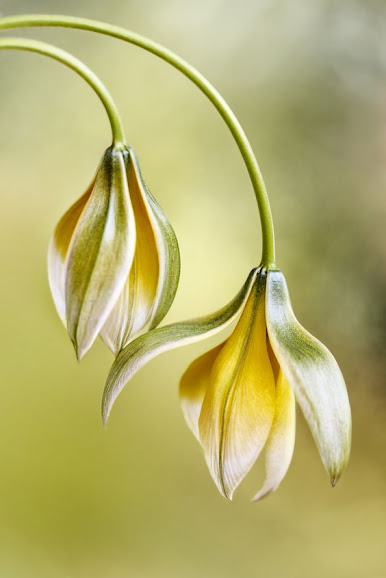Chapter – 42 – Viveka Choodamani - 411 – 420
Preceptor speaks “Whoever abandons the
interest in worldly matters and bondage, and constantly contemplate upon the
supreme Bhramam resides as the soul is Sacchidhanandha Adhvyaya, Paramathma
Parambhramam would not return to the Samsara, gets freed from the vicious cycles
of rebirth. The Mahathma discard the body consciousness like Trina/grass, the human
body is achieved as a Prarabdhakarma is to feed the Karmaphala, hence they discard it like a corpse and contemplate
upon that supreme Bhramam resides as a soul in it, did not come back to worldly
existence. The body is a bundle of
secrete, the Mahathma discard it with the constant contemplation upon the
Anandhaghana Sacchidhananswaroopa Paramathma Parambhramam, and do not look back
for the requirements of the body, or chases after to please the sense, they abandon
it as a ‘Vomit’. They burn the body and I consciousness in the blazing fire of
Athmajjana/knowledge of impermanent nature of Prakrithi/material matters, people,
possession, fame, richness, wealth, money, etc. and the indestructible
Paramathma Parambhramam resides as a soul in the Jeeva. They immerse in the
constant contemplation upon the Nithya Vishudhdha Bodhathma Bhramam and
continues to be in the Nirvikalpasamadhi, ultimately achieve union with it. The
Mahathma do not get anxious about the body that was achieved due to the
Prarabdhakarma, they do not worry whether the body exists or not, they consider
it as the garland adorned on the neck of the cow, continues to take pleasure in
the ‘Brahmaleenavriththi’ transcendental state. The Athmajjani who has
perceived the Akhanda Anandha Sacchidhananda Swaroopa Paramathma as himself/Aham
Bhramasmi’, do not get anxious about the existence or non-existence of the
body. The sign of Jeevanmuktha and the fruit of ‘Athmasidhdhi’ is eternal
bliss, free from grace and disgrace, happiness and sorrow. The fortunate Jeeva achieves Athma Gnana/wisdom
with the practice of Vairagya/abandonment, eventually, Uparathi/lacks the
interest in worldly matters and bondage, ultimately achieves Athmanandha/bliss
and Paramashanthi/serenity of mind. The Yogi who has achieved that Athmanandha
and Paramashanthi would not search for anything else. These Gnana/wisdom,
Vairagya/renunciation, Uparathi/lack of interest in worldly matters, provides
the Athmanandha and Paramashanthi, therefore the Gnana/knowledge of Athman that
was not used to put into practice of Vairagya and thereby to achieve the
Paramanandha is futile, the supreme bliss and contentment are beyond words. The
nature of worldly existence is full of sorrows and has a fleeting nature. The Gnana/wisdom
is the knowledge of ‘life is full of miseries and sorrows, and the experiences
of happiness and sorrows have fleeting nature’, the intelligent do not get over-
excited or anxious in both the state of happiness and sorrows. The pure wisdom
keeps the Jeeva away from dullness, and foolishness, do not prompt to commit unwarranted
deeds.”
Sarvopadhi
Vinirmuktham Sacchidhanandhamadhvayam | Bhavayathmanamathmstham Na Bhooya:
Kalpaseadhvane ||
Cchayeva
PUmsa: Paridhrishyamanamabhasa
Roopena Phalanubhoothya |
Shareeramaracchavavannirastham | Punarnna Sadhdhaththa Idham
Mahathma ||
Sathatha Vimala Bodhanandharoopam Samethya
| Thyaja Jadamala Roopopadhimetham Sudhoore | Adha Punarapi Naisha Smaryatham
Vanthavasthu | Smarana Vishayabhootham Kalpathe
Kuthsanaya ||
Samoolamethath Paradhahya Vahnau | Sadhathmani Bhramani Nirvikalpe |
Thatha: Swayam Nithyavishudhdhandhathmana
Thishtathi Vidhvarishta: ||
Prarabdha
Soothra Gathitham Shareeram | Prayathu Va Thishtathu Goriva Srak| Na Thath Puna: Pashyathi Thaththva Veththanandhathmani
Bhramani Leenavriththi: ||
Akhanda Anandhamathmanam Vijjaya
Swaswaroopatha: | Kimicchan Kasya
Va Hethor Dheham Pushnathi Thaththavith ||
Samsidhdhasya Phalam Thvethajjeevamukthasya Yogina: | Bahirantha: Sadhanandha Rasaswadhanamathmani ||
Vairagasya Phalam Bodho |
Bodhasyoparathi: Phalam | Swanandhanu
Bhavacchanthireshaivoparathe: Phalam ||
Yadhyuththaroththarabhava: Poorvapoorvanthu Nishphalam |
Nivriththi: Parama Thripthiranandhoanupama: Swatha: ||
Dhushta Dhukhashvanudhvego Vidhyaya: Prasthutham
Phalam | Yathkritham Bhranthivelayam Nanakarma Jugupsitham | Pashchannaro Vivekena Thathkatham Karththumarhathi?
